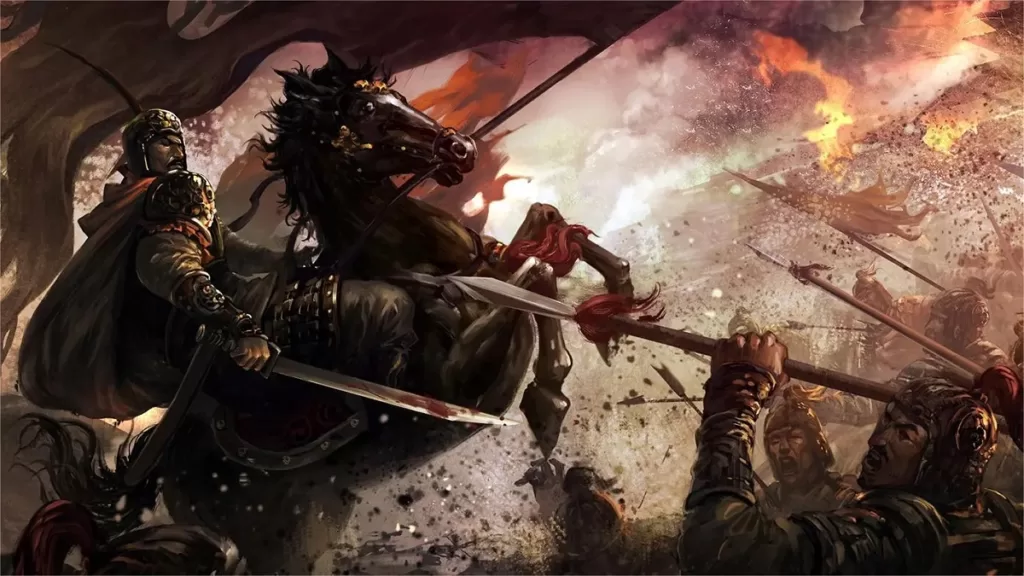Xiang Yu (项羽) (232 BCE – 202 BCE), a prominent figure in ancient Chinese history, is widely remembered as a formidable military and political leader during the late years of the Qin Dynasty and the early stages of the Chu-Han Contention. Hailing from the town of Xiang in present-day Sihong County, Suqian City, Jiangsu Province, Xiang Yu was a descendant of the royal family of the Zhou Dynasty.
In his youth, Xiang Yu showed little promise in academic or martial pursuits, yet he harbored ambitions to resist the dominance of the Qin Dynasty. In the first year of Qin Er Shi’s reign (209 BCE), Xiang Yu joined forces with Xiang Liang and rebelled in Kuaiji (modern-day Suzhou, Jiangsu), responding to the call of the uprisings led by Chen Sheng and Wu Guang. Following Chen Sheng’s death, Xiang Yu assumed leadership of the anti-Qin forces, ultimately supporting the coronation of Xiong Xin, the grandson of King Huai of Chu.
When Qin general Zhang Han attacked Zhao, Xiang Yu, acting on the orders of King Huai, dispatched the subordinate general Song Yi to aid Zhao. However, Song Yi, upon reaching Anyang, refused to advance further and was subsequently executed by Xiang Yu. Taking matters into his own hands, Xiang Yu led his troops to rescue Julu, demonstrating remarkable military prowess by decisively defeating the main forces of the Qin army. Following this triumph, he welcomed the surrender of Zhang Han and ruthlessly executed around two hundred thousand Qin soldiers. Xiang Yu then advanced into the heartland of China.
By this time, Liu Bang had already seized control of Xianyang. Adviser Fan Zeng proposed that Xiang Yu assassinate Liu Bang during the famous Feast at Hong Gate, but the plan was not executed. A temporary truce was established between Xiang Yu and Liu Bang, who jointly attacked Xianyang. After capturing the city, Xiang Yu slaughtered the son of the Qin king, Ying Zi, and set fire to the imperial palaces, looting valuable treasures. In February 206 BCE, Xiang Yu distributed fiefs to various princes, appointing Liu Bang as the King of Han and declaring himself the Hegemon-King of Western Chu, with Pengcheng (modern-day Xuzhou, Jiangsu) as the capital.
Internal conflicts arose as local lords such as Tian Rong and Chen Yu rebelled against Xiang Yu’s rule. Seizing the opportunity, Liu Bang pacified the three Qin territories and advanced towards Western Chu. The power struggle between Chu and Han intensified, with Xiang Yu initially achieving victories but facing internal strife and flawed strategic decisions. Ultimately, he found himself besieged at the Battle of Gaixia. Hearing Chu songs in the night, Xiang Yu believed that the Han forces had taken control of Chu territories. In a desperate attempt, he broke through the encirclement and reached the Wu River, where he chose to end his life by suicide.
Xiang Yu’s life reflects the complexity and turbulence of an era marked by power struggles and shifting allegiances, leaving an indelible mark on the pages of Chinese history as a courageous and tragic hero.

